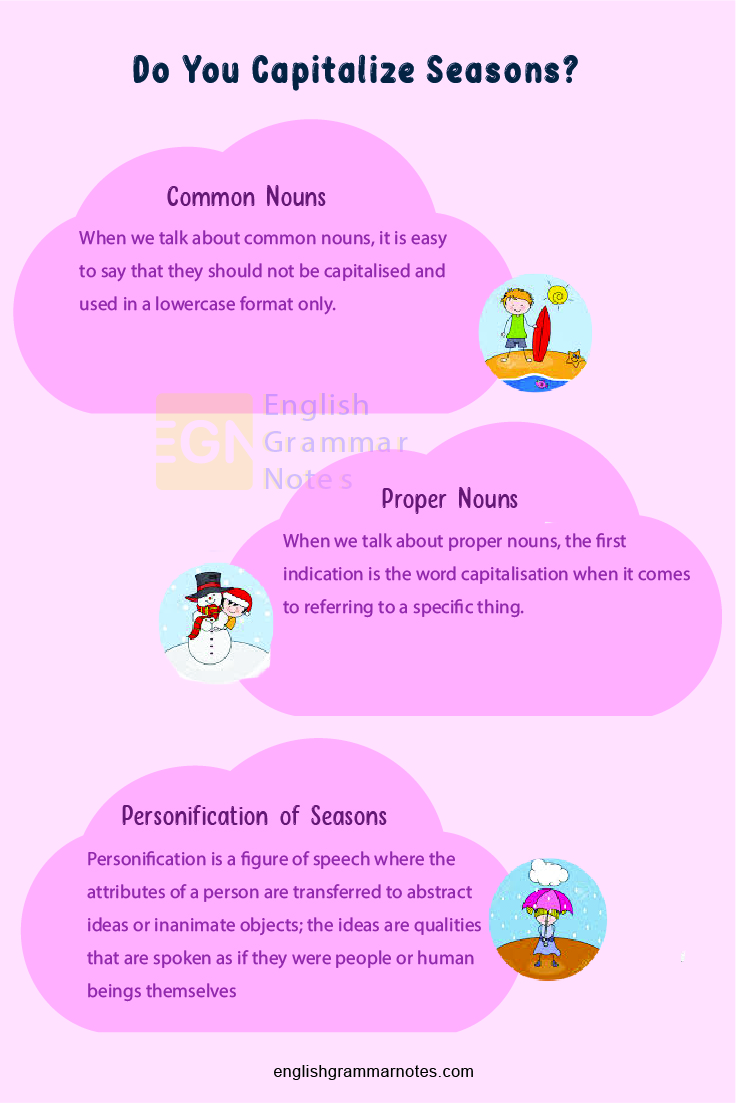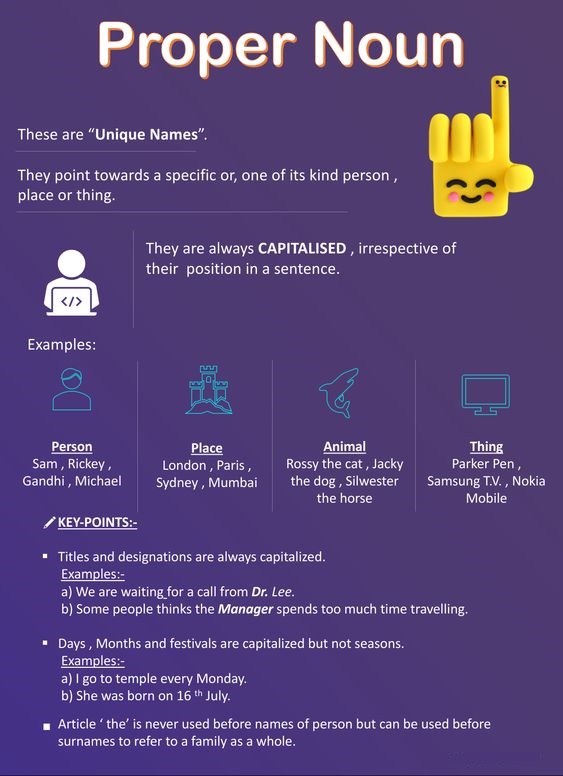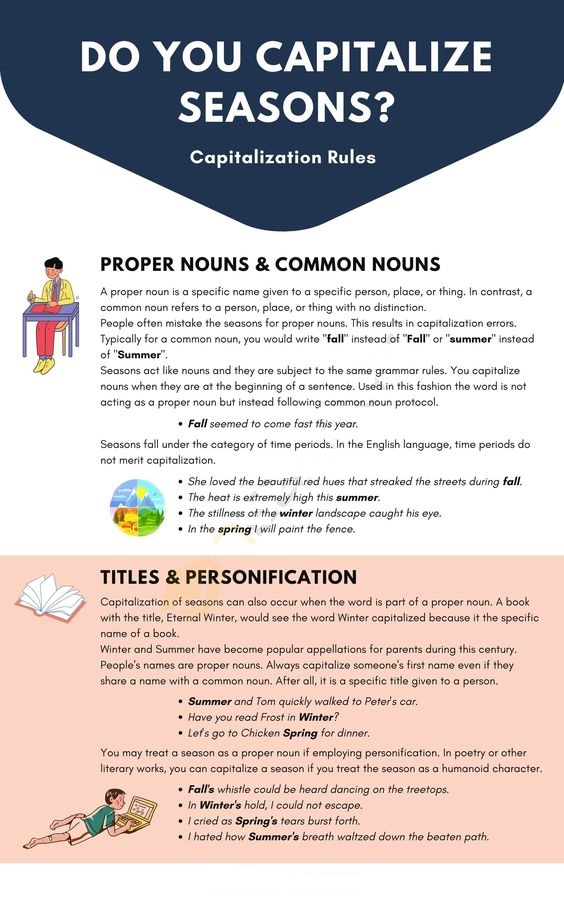Do You Capitalize Seasons?: There are four seasons
- summer,
- Rain fall,
- spring and
- winter.
Usually, all of us refer to them as proper nouns instead of common nouns.
There are two types of nouns:
- Proper nouns and
- Common nouns.
Common nouns generally refer to generic things, whereas proper nouns refer to specific things.
It is also very easy to identify proper nouns and common nouns. Proper nouns always start with a capital letter. On the other hand, common nouns have both singular and plural forms.
Example: India is the seventh-largest country in the world.
In this statement, India is a proper noun, whereas world and country are common nouns.
But it’s important to note that proper nouns are the nouns given to a specific name, place or thing, whereas common nouns are generally referred to with name, place or person with no distinction.
The summer, fall, spring and winter are common nouns, so the first letter of these seasons does not require any capitalisation. The days and months of the week do not function like the seasons; this is why they are seen as proper nouns and come under proper nouns.
Seasons also fall under periods, and in the English language, periods do not merit any capitalisation. The capitalisation of seasons can only occur if the seasons occur at the first word of the sentence. Also, the capitalisation can occur if the word is the part of any proper nouns, a book with a title; Eternal Winter, now here it is simply visible how the word ‘winter’ is capitalised because it is the name of a specific book.
A season can also be treated as a proper noun only if it is personified. In literature and poetry, capitalisation can only be done if you treat the season as a humanoid character.
Here are some of the examples which show how seasons are used as common nouns and proper nouns.
Common Nouns
When we talk about common nouns, it is easy to say that they should not be capitalised and used in a lowercase format only.
Now here are some examples that show how seasons are used as common nouns in a sentence :
- I enjoyed the summer season most.
- It is cold in London during the winter season.
- I will visit the Mughal Garden during the spring.
Proper Nouns
When we talk about proper nouns, the first indication is the word capitalisation when it comes to referring to a specific thing.
Now here are some examples of proper nouns :
- He named his dog Winter.
- Fall is my favourite season.
- Summer and Tom quickly ran into the house.
Personification of Seasons
Personification is a figure of speech where the attributes of a person are transferred to abstract ideas or inanimate objects; the ideas are qualities that are spoken as if they were people or human beings themselves. Personifying of the season can turn the first letter of seasons capitalised.
Here are some examples where seasons are personified :
- I cried as Spring’s tears burst forth.
- I hated how Summer’s breath waltzed down the beaten path.
- In Winter’s hold, I could not escape.

Summary of Rules
When it comes to seasons, we do not capitalise on them generally. On the other hand, weeks and months are always capitalised.
According to the rules of English, the seasons fall under the category of periods that are not under proper nouns hence does not require capitalisation. Seasons can only be capitalised if they refer to a specific thing and make it a proper noun, or they can be personified in a sentence to make it capitalised. Otherwise, they will always remain a common noun and will be used without capitalisation in a lowercase format.


